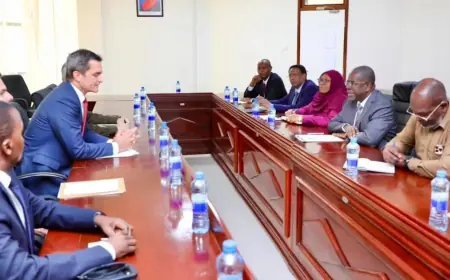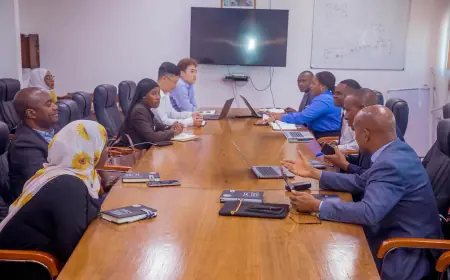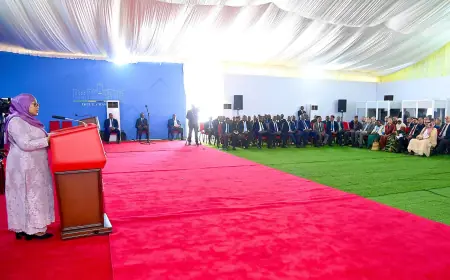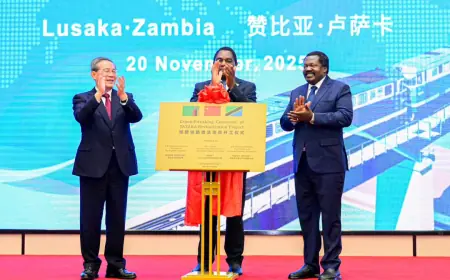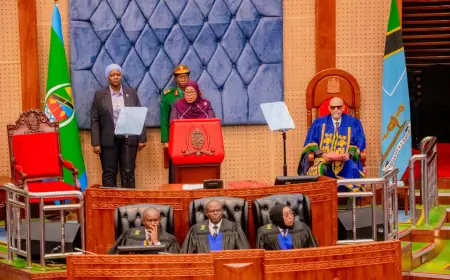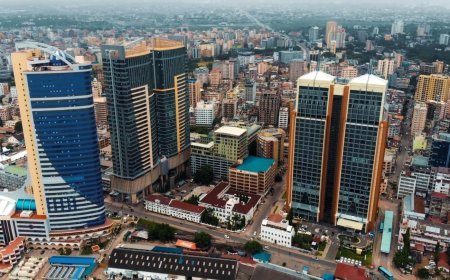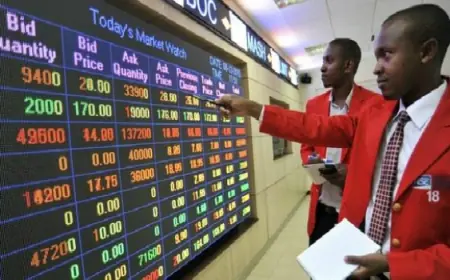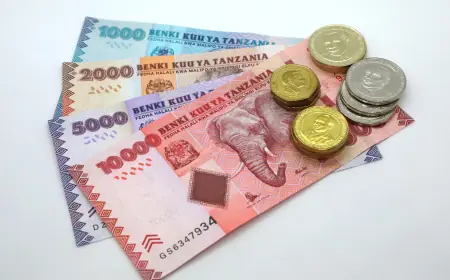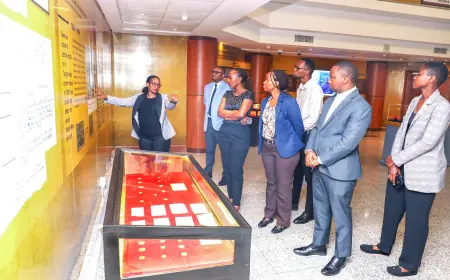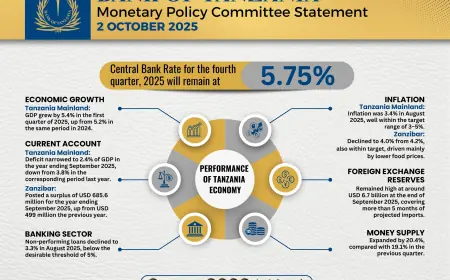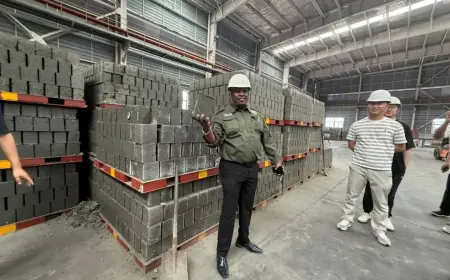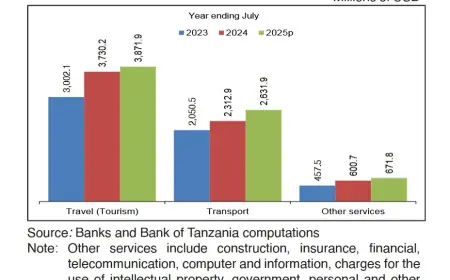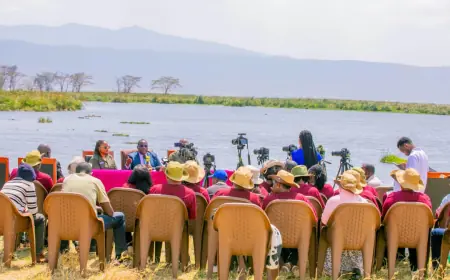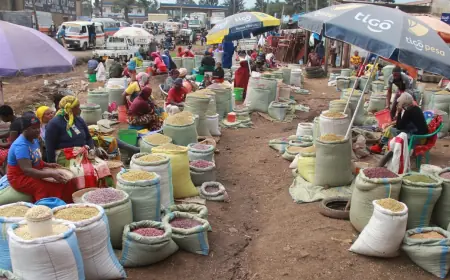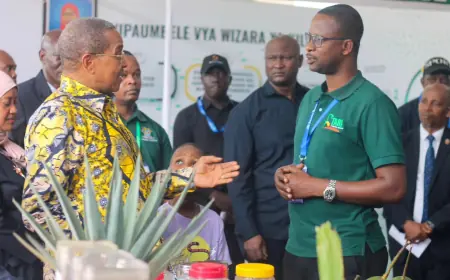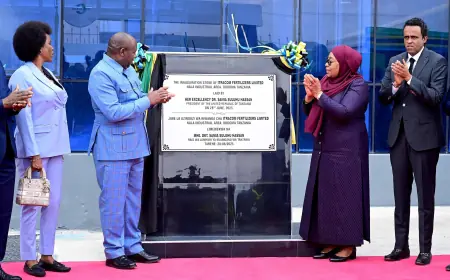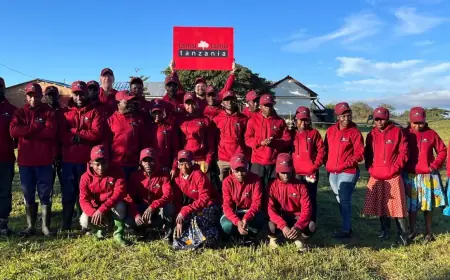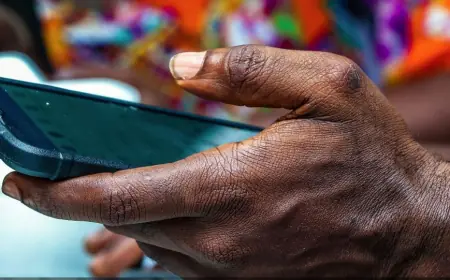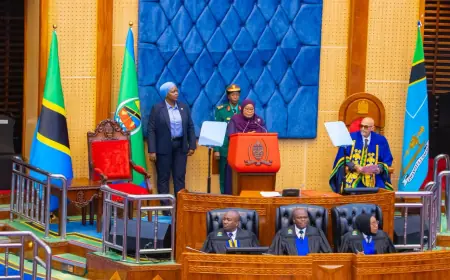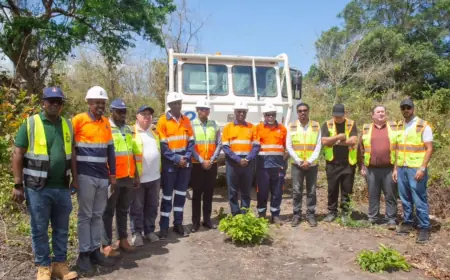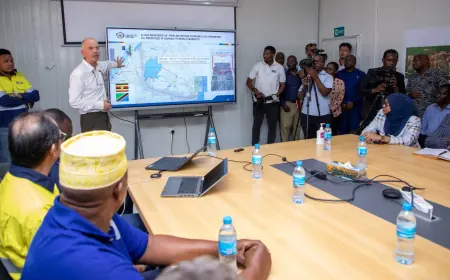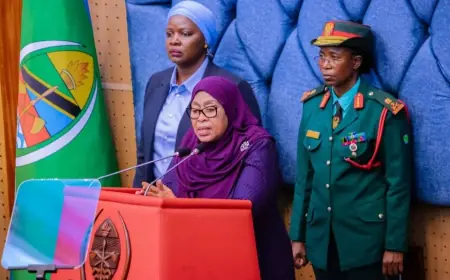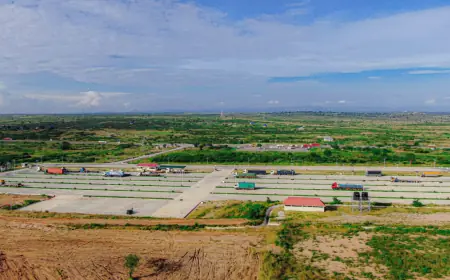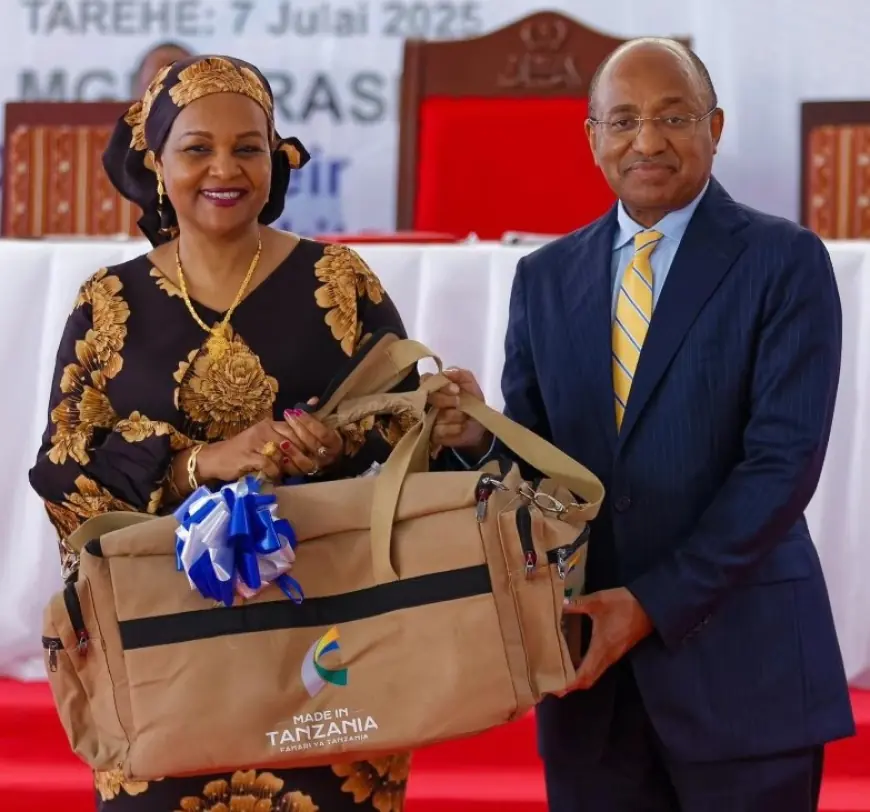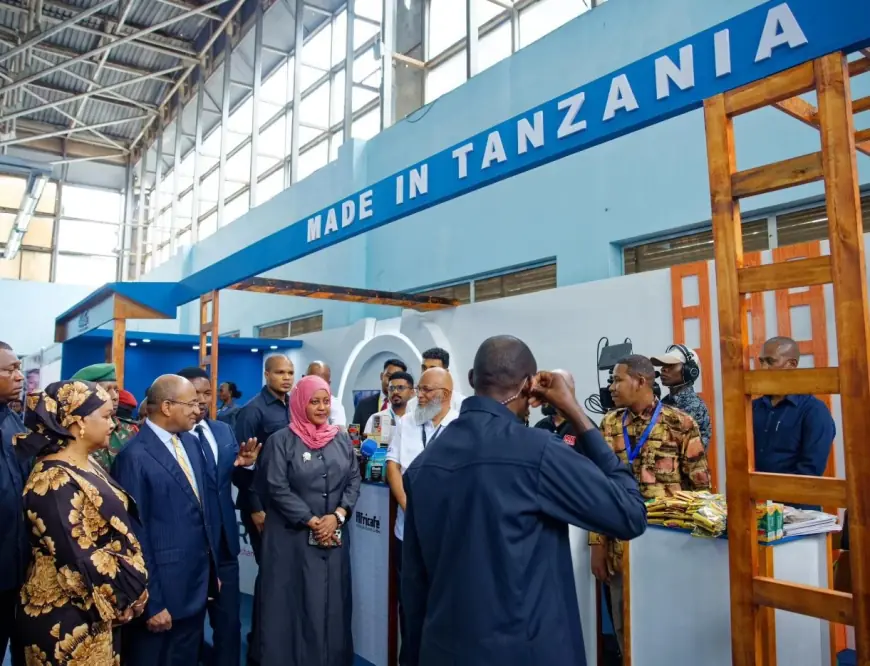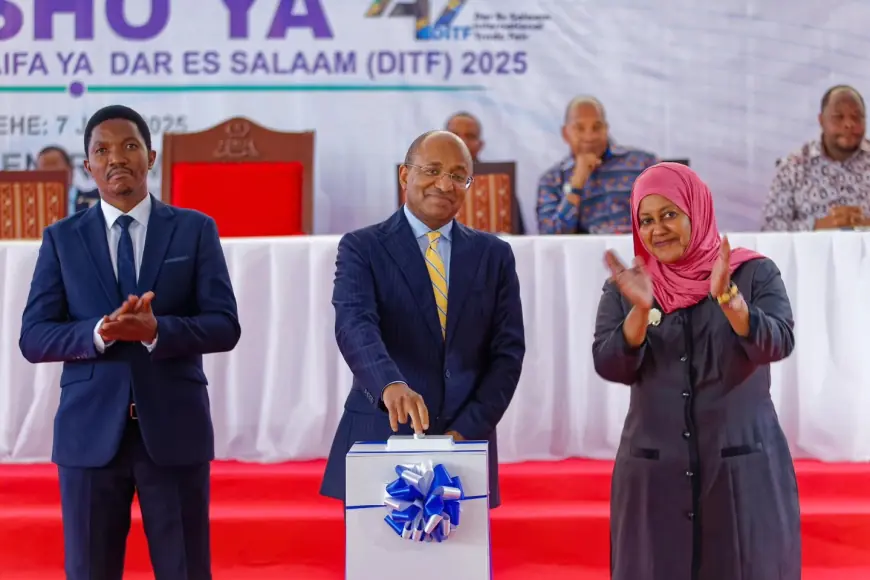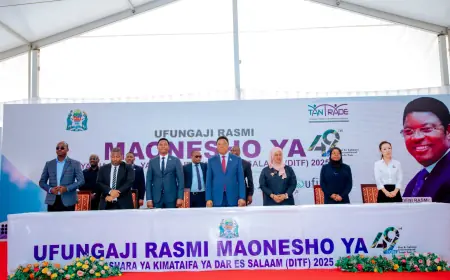Tanzania leverages ‘Made in Tanzania’ mark to boost trade, industry and national identity
This emblem is a strategic instrument meant to anchor local production within a framework of quality assurance, national pride, and export competitiveness
Dar es Salaam. At a time when global markets are demanding authenticity, origin transparency and sustainability, Tanzania has stepped forward with a powerful new symbol of its industrial ambitions, the 'Made in Tanzania' logo, launched on July 7 during the 49th Dar es Salaam International Trade Fair (DITF).
This emblem is a strategic instrument meant to anchor local production within a framework of quality assurance, national pride, and export competitiveness.
The logo, officially unveiled by Zanzibar President Dr Hussein Ali Mwinyi, is part of a broader government initiative to transform the country’s manufacturing landscape, inspire consumer loyalty to domestic goods, and reinforce Tanzania’s identity in international commerce.
It reflects a growing resolve to build a self-sustaining economy, rooted in innovation and indigenous enterprise.
A Strategic Identity for Tanzanian Goods
The idea behind a national logo for local products is not new, but its realisation marks a pivotal step for Tanzania.
The ‘Made in Tanzania’ mark is envisioned to serve as a certificate of origin and a quality assurance tool, helping distinguish Tanzanian goods in competitive global markets.
In a region where counterfeit goods often dilute product integrity, the logo will function as a hallmark of authenticity, reliability, and craftsmanship.
But its impact goes deeper.
President Mwinyi described it as a call to "commercial patriotism," a cultural shift where Tanzanians are encouraged not only to consume what is locally produced, but also to take pride in building industries that drive national development.
“This logo is a badge of pride. It is a statement that what is made here can meet global standards. Let us support our manufacturers and promote local content not just out of necessity, but out of belief in our own potential,” he said.
Transforming Sabasaba into a Global Marketplace
The launch of the logo at the DITF was deliberately symbolic. The fair—now in its 49th edition—has evolved over the years from a domestic exhibition into a regional commercial hub.
This year’s event, themed around digital innovation, has attracted over 5,700 exhibitors from inside and outside the country.
By featuring the new logo prominently throughout the grounds, the Tanzania Trade Development Authority (TanTrade) aims to make Sabasaba a springboard for Tanzanian goods into foreign markets.
Indeed, the transformation of the DITF is already evident. TanTrade’s Director General Latifa Mohamed reported a 10.6 percent increase in participation compared to last year.
Visitors nearly tripled from 129,000 to over 295,000, thanks in part to improved digital services, including the new SabasabaApp, which streamlined registration, ticketing, and entry protocols.
These enhancements have turned the fair into a more efficient, data-driven showcase—one that mirrors the aspirations of the 'Made in Tanzania' vision.
Tapping into Export Potential
For years, Tanzanian products have struggled to reach global markets not due to lack of quality or quantity, but due to weak branding, fragmented trade logistics, and insufficient promotion.
Now, with industries such as cement, glass, and food processing producing surplus stock, the timing for a unifying export identity is ideal.
Dr Selemani Jafo, Minister of Industry and Trade, emphasised that the country has developed a solid foundation for export-led growth.
Legal and regulatory reforms have created a more predictable and attractive business environment, while infrastructural improvements, especially in energy and transport, have boosted production efficiency.
The introduction of the 'Made in Tanzania' logo serves to complete the puzzle, allowing exporters to market their goods under a unified national identity that resonates globally.
Beyond a Logo
While the unveiling of a logo may appear symbolic, its implications are tangible. Countries like Kenya, South Africa, and India have used national branding schemes to great effect, raising the profile of domestic products and increasing their market share abroad.
For Tanzania, the logo is poised to function in similar fashion—acting as a stamp of trust and a competitive edge in international trade negotiations.
But perhaps most importantly, it can galvanise a sense of economic unity among Tanzanians.
By choosing to buy locally branded goods, consumers participate in a wider narrative of national development, employment creation, and industrial growth.
What's Your Reaction?
 Like
1
Like
1
 Dislike
0
Dislike
0
 Love
0
Love
0
 Funny
0
Funny
0
 Angry
0
Angry
0
 Sad
0
Sad
0
 Wow
0
Wow
0

